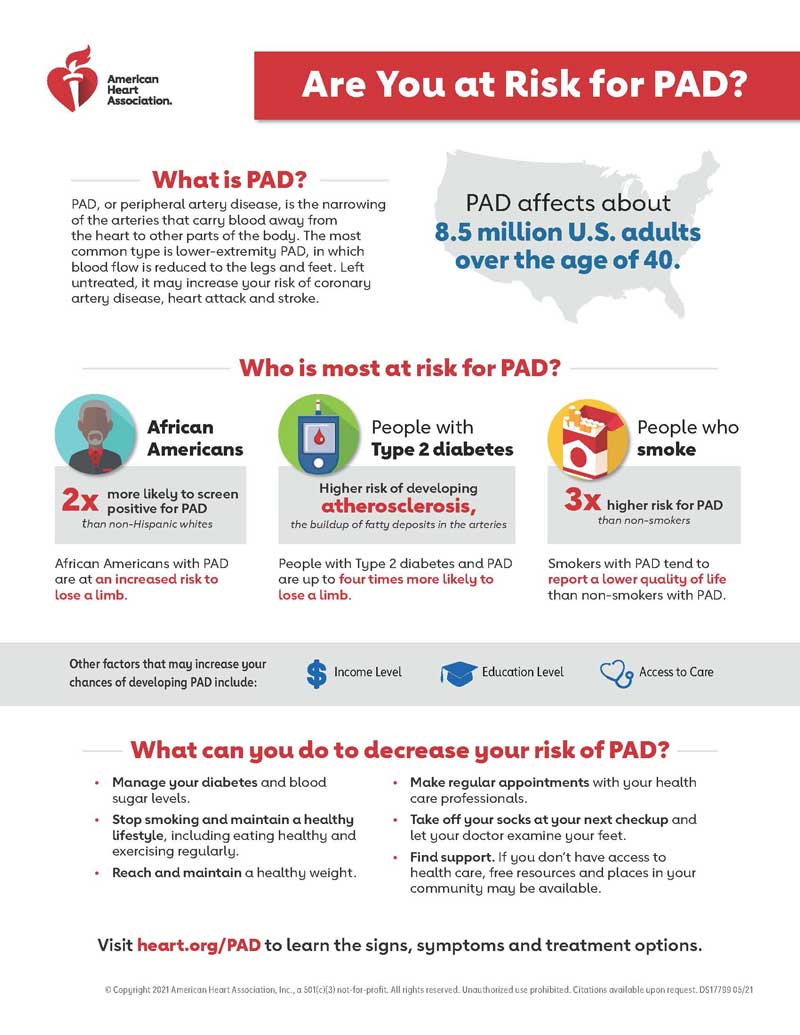Are You at Risk for PAD? Infographic

Are You at Risk for PAD?
What is PAD?
PAD, or peripheral artery disease, is the narrowing of the arteries that carry blood away from the heart to other parts of the body. The most common type is lower-extremity PAD, in which blood flow is reduced to the legs and feet. Left untreated, it may increase your risk of coronary artery disease, heart attack and stroke.
PAD affects about 8.5 million U.S. adults over age 40.
Who is most at risk for PAD?
African Americans
- African Americans are two times more likely to screen positive for PAD than non-Hispanic whites.
- African Americans with PAD are at an increased risk to lose a limb.
People with Type 2 diabetes
- People with Type 2 diabetes have a higher risk of developing atherosclerosis, the buildup of fatty deposits in the arteries.
- People with Type 2 diabetes and PAD are up to four times more likely to lose a limb.
People who smoke:
- Smokers have almost three times higher risk for PAD than non-smokers.
- Smokers with PAD tend to report a lower quality of life than non-smokers with PAD.
Other factors that may increase your chances of developing PAD include:
- Income level
- Education level
- Access to care
What can you do to decrease your risk of PAD?
- Manage your diabetes and blood sugar levels.
- Stop smoking and maintain a healthy lifestyle, including eating healthy and exercising regularly.
- Reach and maintain a healthy weight.
- Make regular appointments with your health care professionals.
- Take off your socks at your next checkup and let your doctor examine your feet.
- Find support. If you don’t have access to health care, free resources and places in your community may be available.
Visit heart.org/PAD to learn the signs, symptoms and treatment options.
© Copyright 2021 American Heart Association, Inc., a 501(c)(3) not-for-profit. All rights reserved. Unauthorized use prohibited. Citations available upon request.